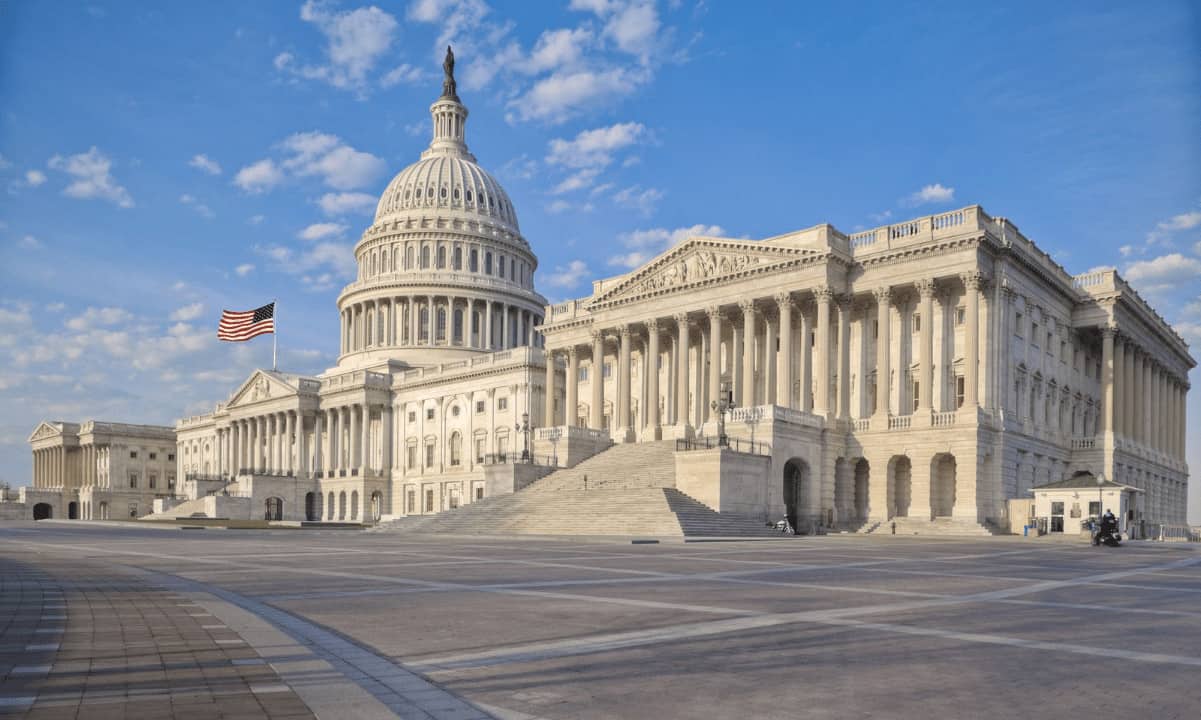The US government is close to postponing its federal default for at least a year after Congress finally approved a debt limit increase by a whopping $2.5 trillion.
With the potentially growing debt ceiling above $30 trillion and the enhanced mass printing of US dollars, which already causes surging inflation, the question arises – what about Bitcoin?
US Debt Ceiling Raised (Again)
The US House of Representatives approved the previous debt ceiling raise in October 2021 with a more “modest” $480 billion increase, which brought the borrowing limit to $28.9 trillion. Although the Republicans initially tried to oppose the bill’s acceptance due to the Democrats’ plans to enhance social and climate spendings, the legislation was quickly signed by President Joe Biden and came to effect.
It was known at the time that this particular limit increase won’t do any good for the country in the long run, as the next hearing was expected to be in December. As December arrived, the scenario repeated to a large extent, with Republicans seemingly trying to fight the bill but the Democrats emerging with the upper hand.
With a 221-to-209 vote, the bill passed Congress and is now in the hands of President Biden, who is expected to sign it soon. If he does, the bill will increase the federal government’s debt limit by $2.5 trillion to $31.4 trillion. More importantly for the world’s most powerful economy, though, it will delay the threat of a federal default until at least early 2023.
Speaker Nancy Pelosi of California praised the bill’s acceptance, saying, “the full faith and credit of the United States should never be questioned. The health of our economy should never be threatened.”
In contrast, Republican Representative Jodey Arrington was disappointed in the end result, noting that the country’s debt level will be at its highest level since World War II and “we ain’t in a war” now.
How Does Bitcoin Fit Into This?
With the US printing excessive amounts of its national currency in the past two years and the frequent raising of its debt limits, the consequences are already more than evident. The US inflation rates, which have historically been increasing by 3.24%, have grown by significantly larger percentages in the past six months.
This led to a 6.8% surge in November – the highest in approximately 40 years. Even the people behind some of the most crucial decisions – Fed Chair Jerome Powell and Treasury Secretary Janet Yellen – stopped referring to the rapidly increasing inflation as “transitory.”
On the other shore lies Bitcoin. It has pre-programmed inflation rates, which actually decline every roughly four years. It doesn’t have a central authority behind it to decide whether the amount of newly created bitcoins should nearly double in a few years as the dollar did. It has a limited supply, which can’t be increased by a signature from a president.
Somewhat expectedly, all of these features started to attract prominent investors from outside the cryptocurrency industry. Names like Paul Tudor Jones III, Stan Druckenmiller, Thoma Bravo, Anthony Scaramucci, and others started to pour money into BTC and frequently praise it as an investment tool against rising inflation.
$2.5 Trillion Bitcoin Ad
With the new $2.5 trillion debt limit increase awaiting just the signature of President Biden, who is a Democrat, CryptoPotato decided to reach out to some crypto insiders and experts to check out their opinion on the potential effects on BTC.
Max Keiser, the host of the Keiser report and a well-known BTC proponent, said this bill has created the “perfect conditions for Bitcoin” as the US government has “capitulated to the ravenous, insatiable dogs of hyperinflation.”
“I hate to see America collapse, but I don’t own more than a few USD, so I don’t care.” – he added.
Scott Melker, known as the Wolf of All Streets, indicated that Bitcoin is an uncorrelated asset that offers “idiosyncratic risk for a savvy investor with a long time horizen.”
“Short-term news like the inevitable increase in the debt ceiling is a small blip on the radar for Bitcoin. Everyone knows that the government will continue to print money and raise the debt ceiling whenever necessary, which is largely priced in to Bitcoin’s importance and use case – as a hedge against this very nonsense.” – he concluded.
Tyler Winklevoss, Gemini co-founder and early BTC adopter, believes the Senate’s approval will actually work as a “$2.5 trillion advertisement for Bitcoin.” Michael Saylor shared a similar opinion, replying, “it would appear that Bitcoin has government support.”
It would appear that #bitcoin has government support…
— Michael Saylor
(@saylor) December 14, 2021




















